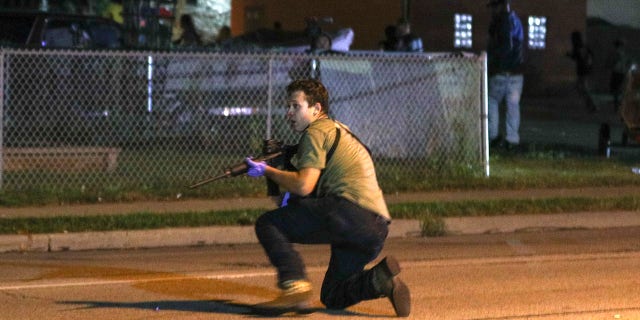Lawsuit Can Proceed Against Kenosha Shooter Kyle Rittenhouse 2025

In the whirlwind of American sentiment surrounding gun laws, self-defense, and the tumultuous events of the Kenosha protests in 2020, a new chapter unfolds in the saga of Kyle Rittenhouse. As 2025 approaches, legal battles ripple through the fabric of public consciousness, with a pivotal lawsuit against Rittenhouse gaining traction. Could the outcome of this case bring forth new discussions on civic responsibility and the limits of self-defense? The stakes are immensely high, not only for Rittenhouse but also for society at large, marking the potential evolution of legal precedents across the nation.
The background of the Rittenhouse case is fraught with emotion and controversy. In 2020, during protests ignited by the tragic shooting of Jacob Blake, Rittenhouse, then a mere seventeen years old, took it upon himself to arm himself with a semi-automatic rifle. What transpired—a chaotic encounter whence Rittenhouse shot and killed two individuals while injuring another—ignited a firestorm of debate. Herein lies the heart of our inquiry: what does it mean when an individual feels compelled to take such lethal action? And under what circumstances should the law prioritize self-defense over the conduct that provoked violence?
As we delve deeper into the current legal landscape, the lawsuit being pursued by one of the victims' families against Rittenhouse emerges as a profound challenge against the traditional boundaries of self-defense claims. In this monumental case, the plaintiffs contend that Kenosha police conspired with Rittenhouse, implicitly enabling him to act as a vigilante. This assertion raises an intriguing question: to what extent can law enforcement's actions—or inactions—be deemed culpable in fostering an environment where individuals take the law into their own hands?
Analyzing the potential outcomes, one must ponder, what might success look like for the plaintiffs? Should they emerge victorious, it could redefine liabilities surrounding self-appointed guardians and the collateral damage they incur. The legal community is abuzz with speculation regarding the implications of such a ruling. Would it send ripples throughout the nation, potentially deterring individuals from acting independently in high-tension situations? Or conversely, might it embolden future protests against perceived injustices, emboldened by the prospect of legal recourse against aggressive self-defense claims?
The lawsuit also enkindles a broader discussion surrounding the interplay of race, power, and privilege within the judicial system. The fact that Rittenhouse, a white male, received substantial public support during his trial while the victims—both from marginalized backgrounds—often faced criminalization in the narratives surrounding their deaths adds layers of complexity to the case's implications. Are we witnessing a transformation in how society delineates between protector and aggressor? The advent of the “Blue Lives Matter” argument during Rittenhouse’s trial further complicates this tapestry, as it intertwines law enforcement’s relationship with community protection and personal vigilantism.
As the case progresses, challenges loom on the horizon. Opponents of the plaintiffs might argue that to hold Rittenhouse accountable is to undermine the foundational tenets of self-defense law in the United States. This potential clash raises an enthralling question: can one individual's perception of threat ever justifiably lead to irreversible consequences for others? Such considerations necessitate rigorous examination. Perhaps they compel us to scrutinize the very essence of our laws and their interaction with societal norms.
The courtroom may very well serve as a microcosm for America's struggle to reconcile its values of individual liberty with collective safety. If an individual rightly perceives themselves to be under threat, what does that mean for the rights of those around them? Would a verdict ruling against Rittenhouse catalyze a seismic shift, marking the end of "stand your ground" laws in certain jurisdictions? Or could it fortify them, enshrining the very principles that a segment of society believes are necessary for their protection?
Additionally, the public's response to this lawsuit could shape the narrative surrounding the case. Virtual spectacles fueled by social media allow citizens to express their beliefs with unprecedented fervor. As with Rittenhouse's initial trial, social media serves as both a platform for support and censure, influencing public perception and potentially impacting jury selection if the case proceeds to trial. The manner in which public sentiment sways could determine not only the outcome of this lawsuit but the trajectory of similar claims in the future.
In contemplating the path ahead, it's crucial to recognize that this lawsuit is more than a legal endeavor; it serves as a reflection of contemporary societal values. What do we, as a collective, deem acceptable behavior in high-pressure environments? As citizens navigate the rough waters of political protests and civil unrest, the case against Rittenhouse may ultimately challenge notions of personal accountability versus systematic culpability.
As we stand at the precipice of 2025, the severity of the implications surrounding this lawsuit calls for both introspection and dialogue. A ruling could engender not only new legal precedents but could also compel society to confront its entrenched beliefs regarding justice, public safety, and the interplay of individual actions. Regardless of the case’s outcome, one truth remains: the conversation surrounding self-defense and civil liberty in America has only just begun.
Post a Comment for "Lawsuit Can Proceed Against Kenosha Shooter Kyle Rittenhouse 2025"